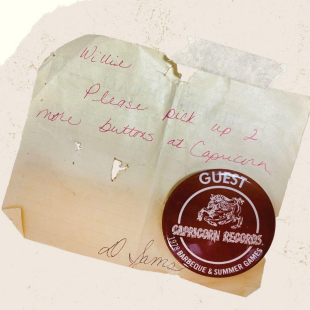
Throughout the 1970’s, Jones Cork attorneys were frequently included on the guest list for the Capricorn Records Annual Barbeque & Summer Games, initially held at Phil Walden’s lake home, and later at (the former) Lakeside Park in Macon near Jeffersonville Road. Other notable guests included members of the Allman Brothers Band, Cher, Wet Willie, Georgia’s Governor and soon-to-be President of the United States Jimmy Carter, Andy Warhol, and Don King, among others
Charlie Cork, Jr., as counsel for Walden Artists & Promotions, assisted with a real estate transaction involving Percy Sledge, and was later fortunate enough to have attended a small, private performance by Percy Sledge at Phil Walden’s home.
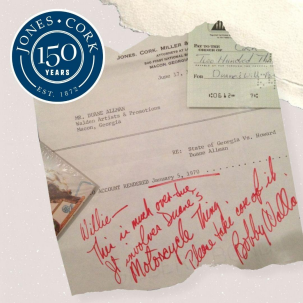
In 1970, Jerome Strickland represented Duane Allman regarding an “incident” arising from the operation of his motorcycle. The firm’s invoice for services related to “Duane’s Wild Ride” remains on display at the Big House Museum.
Throughout the early/mid 1970’s, Dee Sams represented one of the Allman Brothers Band’s drummers, Jaimoe, regarding miscellaneous matters. Dee was even invited to watch the Allman Brothers Band practice at the Willingham Mills warehouse, and following one such jam session, Jaimoe presented Dee with a cassette tape recording of the session as a souvenir.
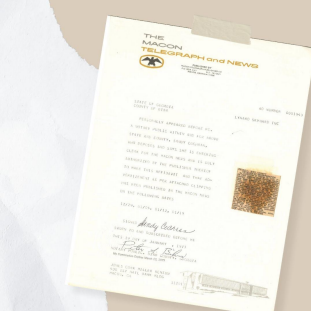
Between 1973-1974, Charlie Cork, Jr. assisted Lynyrd Skynyrd with the formation of the band’s corporate entity. While drafting the Articles of Incorporation, Mr. Cork was incorrectly given a “curious” spelling of the band’s name, so an amendment was later filed to correct the name from the first incorporated spelling (Lynard Skynard), as it appeared in the Macon Telegraph Publisher’s Affidavit
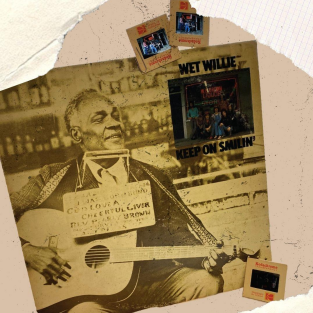
In 1974, Jerome Strickland and Hu Lovein defended a lawsuit filed against Capricorn Records by singer and guitarist Rev. Pearly Brown, alleging the band Wet Willie’s use of a photo depicting the street singer outside a local liquor store on the cover of their very successful album, Keep on Smilin’, was an appropriation of Rev. Pearly Brown’s likeness for Capricorn’s advantage, and placed him in a false light in the public eye. The case was decided in favor of Capricorn Records after the Court ruled that Rev. Pearly Brown was, in fact, independently associated with the liquor store and with rock and roll musicians and that Capricorn’s use of the photo was permissible.
